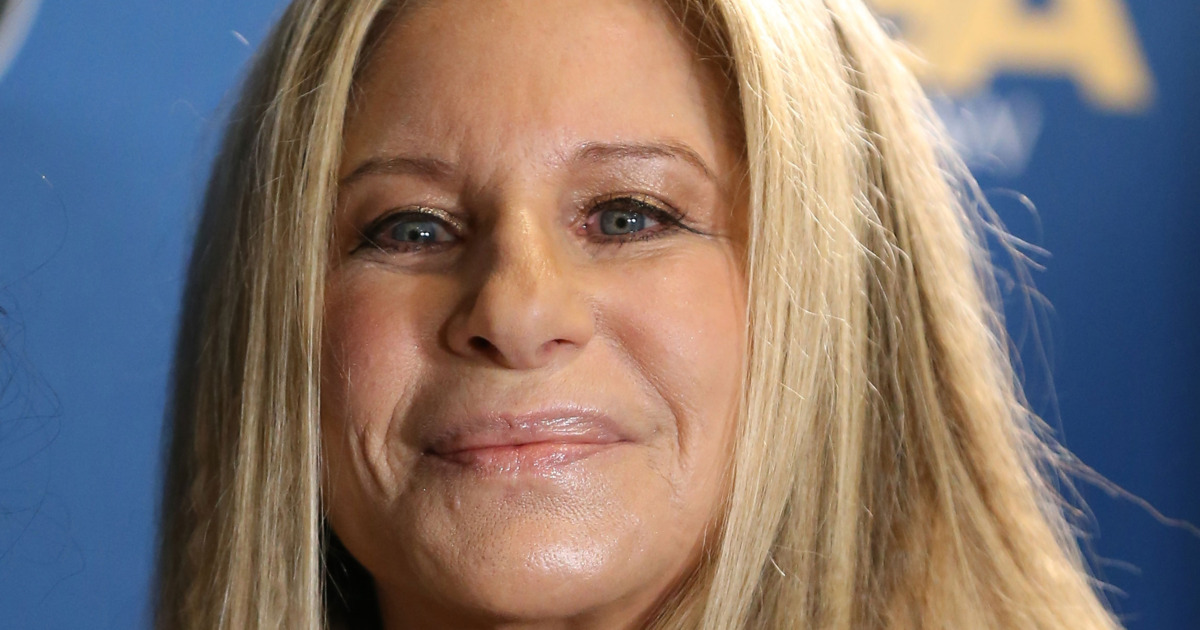Barbra Streisand's Controversial Take On The Trump Assassination Attempt

On a fateful Saturday afternoon, as Donald Trump stood before his supporters in Butler, Pennsylvania, an unexpected chaos erupted. The Republican 2024 presidential nominee was delivering a speech when shots rang out, sending security agents rushing to protect him. The incident, which left Trump injured, claimed the life of a rally attendee and critically wounded two others, raising serious concerns about the security of public figures. The gunman, identified as 20-year-old Thomas Matthew Crooks, was shot dead by Secret Service agents, leaving many to wonder how he managed to execute such a brazen attack from a rooftop.
In the aftermath of this shocking event, Barbra Streisand made headlines with her theory regarding Crooks' motivations. The acclaimed actress and singer suggested that Crooks' attempt at assassination could stem from his experiences of being bullied in school, paralleling it with Trump's reputation as a "bully." This statement, shared on social media, sparked immediate backlash, with many condemning her comments as inappropriate and insensitive given the gravity of the situation.
The incident has not only reignited discussions about political violence but also highlighted the divides in public opinion regarding both Trump and Streisand. While some defended Streisand's perspective, others vehemently criticized her for appearing to deflect responsibility onto the former president. This debate reflects a broader societal issue concerning the intersection of celebrity, politics, and public safety.
Biography of Barbra Streisand
| Attribute | Details |
|---|---|
| Name | Barbra Streisand |
| Date of Birth | April 24, 1942 |
| Profession | Actress, Singer, Filmmaker |
| Notable Works | Funny Girl, The Way We Were, Yentl |
| Political Affiliation | Democratic Party |
Table of Contents
Details of the Assassination Attempt
The assassination attempt on Donald Trump occurred during a rally where he was addressing his supporters. The chaos began when shots were fired, prompting immediate reactions from Trump's security detail. As Trump was seen clutching his ear, it became evident that the threat was very real. The assailant, later identified as Thomas Matthew Crooks, had managed to position himself in a strategic location, raising serious questions about the security protocols in place for such events.
This shocking occurrence not only endangered Trump's life but also highlighted the growing concern of safety at political rallies. The fact that a young individual could orchestrate such an attack reflects a deeper issue in how society perceives political discourse and the potential for violence. Investigators are now tasked with unraveling the motivations behind Crooks' actions, examining the influences that could have led to this tragic event.
Public Reaction to Streisand's Comments
In the wake of the assassination attempt, Barbra Streisand's comments drew a polarized response from the public. While some praised her for attempting to provide insight into the motivations of the assailant, others condemned her for trivializing the event. Critics took to social media to express their outrage, labeling her remarks as "disgusting" and accusing her of politicizing a tragic incident.
Supporters of Trump were particularly vocal, asserting that Streisand's comments reflected a broader narrative among some celebrities who they believe are hostile toward conservative viewpoints. This backlash underscores the increasing divide in American society, where political affiliations can greatly influence perceptions of events and individuals. The intensity of the reactions also speaks to how emotionally charged the current political climate is, with many people feeling strongly about their beliefs.
Ongoing Investigation and Implications
As investigators delve into the circumstances surrounding the assassination attempt, they are considering various factors that may have influenced Crooks' actions. The FBI is treating the incident as a potential act of domestic terrorism, examining Crooks' background, motivations, and any possible connections to extremist ideologies. This investigation not only aims to provide answers regarding this specific case but also seeks to address the larger question of safety in a politically charged environment.
The implications of this incident extend far beyond the immediate tragedy. It raises critical discussions about the security of political figures, the impact of divisive rhetoric, and the potential consequences of bullying in society. As the investigation unfolds, it will undoubtedly spark further dialogue about how to navigate the complexities of political discourse and public safety in an increasingly polarized America.
ncG1vNJzZmirn521b6%2FOpmasp5idu6bD0rCcnmtfl66zrtGaZKysopq2tK3NnWStoJ%2BirrR5zJqrraCVrHqkvs6oomallajAorPEZp2uqqlifnp%2Blm5pcWaYqbqt